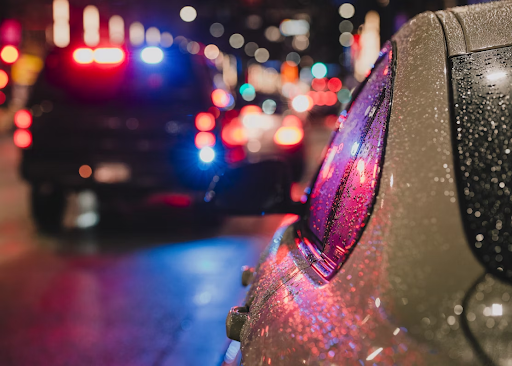Getting pulled over by law enforcement can be a nerve-wracking experience, especially if you’re unsure what’s coming next. In DUI-related stops, many drivers unknowingly give up their rights or make critical mistakes that can hurt them later in court. Understanding your legal protections and how to conduct yourself calmly can make all the difference. If you’re facing a DUI charge or want to be prepared just in case, consulting a legal professional like https://priestcriminaldefense.com/dui-attorney-vancouver-wa/ can help you better understand your defense options and protect your record.
Table of Contents
The Details Before the Stop to be Sought by Officers
The police officers cannot stop motorists randomly, but they are supposed to possess reasonable suspicion that a motorist has broken the law. This suspicion may be established on such actions as swerving, driving slowly, red-light running, or changing lane unpredictably. The trick is that the officer should see something which can be considered as a reason to make the stop.
Once they stop you, that original observation becomes part of their case. Although you might not have taken alcohol or drugs, the way you conduct yourself and appear, as well as your demeanor, will be recorded during the stop. It is for this reason that one should learn to remain calm and polite, avoiding the unnecessary disclosure of information.
You Have a Right to Remain Silent
The right to remain silent is one of the most significant rights that you possess when you are stopped for DUI. This does not imply that you should disregard the officer altogether; simple questions such as your name, license, and registration are supposed to be answered. However, with questions like, Have you been drinking? Or where are you coming from? You are not obliged to answer them.
The FSTs are Voluntary
Once he stops you, an officer is likely to request you to leave the vehicle and conduct a sequence of field sobriety tests. These may be as simple as walking in a straight line, standing on one leg, or tracking an object with the eyes. The fact is that many people are unaware that such tests are not legally required in Washington State.
The Implications of Refusing a Breathalyzer: The Positive and the Negative
Breath tests are of two types: the preliminary breath test (PBT), which is available at the scene, and the official breathalyzer at the station. A refusal of the PBT roadside test will not result in immediate penalties in most cases. Nevertheless, when a person is arrested, automatic penalties can be imposed on them by refusing the official breath test at the station, according to the Washington implied consent law.
Documentation of the Encounter
In most states, including Washington, you have the legal right to document your encounter with police during a traffic stop, including recording your voice. The recording may be necessary for establishing what happened and may help defend your rights in the event of a trial.
What You Should Do when You are Arrested
The officer is also allowed to arrest you in case he or she thinks he/she has probable cause. This could be through the use of a breathalyser, apparent impairment, or their subjective opinion. This is the time that your Miranda rights ought to be read to you, which includes the right to remain silent and the right to an attorney.
It is the time when silence is vital. Do not attempt to explain, argue or plead your case there and then. Rather, you should ask a lawyer and be silent until you have talked to one. The errors committed at this stage usually determine the difference between dismissal and conviction.
The Relevance of Legal Representation
DUIs are not simple misdemeanors; they carry actual costs, fines, suspension of license, increased insurance costs, and even imprisonment. However, being charged does not necessarily mean that you will be convicted. An experienced lawyer can analyze whether the stop was legal, whether the tests were conducted correctly, and whether your rights were infringed upon at some stage.
To have a fair chance of winning, you can hire a local professional who is conversant with the legal system of Washington, and this can increase your chances by a thousand percent. In the case that one is close to Clark County, it can help to clarify, bring peace of mind, and provide a better defense to hire the help of an experienced DUI attorney in Vancouver, WA.
The Post-Stop Action
Although you may not be arrested, the moment when you are pulled over based on the suspicion of DUI is a serious one. Write down all that you can recall: what the officer stated, what you said, the tests that were used, and how you felt during the stop. Such notes can subsequently help your lawyer to create your defense.
Conclusion
To be stopped on suspicion of DUI may be frightening, though remembering your rights may help you to calm down and not incriminate yourself. You can remain silent, you can decline any field sobriety tests, and you can discuss with an attorney before answering questions that might hurt you. The best defense you will ever have is your rights, and knowing how and when to utilize them is the smartest thing you can do to safeguard your future. When you or someone you know needs DUI defense, it’s time to seek the help of an experienced legal advocate who is well-versed in the local court system and laws.


